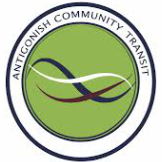LCC Project Overview
Background
Rural communities in Nova Scotia face unique transportation challenges, including dispersed populations, long travel distances, and limited public transit options. These factors contribute to a strong reliance on personal vehicles, making the transition to electric vehicles (EVs) critical but also complex.‚Äč‚Äč‚Äč‚Äč‚Äč
According to NovaTRAC survey data, approximately one-third of rural residents expressed interest in purchasing EVs, highlighting a growing awareness and willingness to adopt cleaner transportation options. However, barriers such as insufficient charging infrastructure, limited EV knowledge, and concerns about vehicle range remain significant obstacles.
 Őż Őż |
This initiative supports broader climate goals while promoting equitable, accessible, and sustainable transportation solutions for all residents. The project engages diverse stakeholders from rural municipalities, non-governmental organizations, and provincial agencies to collaboratively develop electrification strategies tailored to rural Nova Scotia. Through workshops, case studies, and knowledge sharing, the project seeks to create actionable frameworks that support equitable and effective EV adoption, ultimately contributing to the province’s climate goals and improving rural mobility.
Project Approach
This project uses a collaborative, community-centered approach to explore opportunities for rural transportation electrification in Nova Scotia. By working directly with municipalities and other key stakeholders, the project aims to identify local needs, challenges, and solutions that support a just and achievable transition to low-carbon transportation.
 Őż
Őż
Project Activities
Stakeholder Workshops Three in-person workshops are being held across the province to gather insights from rural municipal leaders, community organizations, provincial agencies, and energy providers. These sessions focus on identifying barriers, co-developing strategies, and building momentum around rural electric mobility.
Learn more about past and future stakeholder engagement sessionsŐżhere.
|
Canadian Case Studies
|
A review of comparable rural communities across Canada is being conducted to identify best practices, policy models, and implementation strategies for rural EV infrastructure and services. |
Nova Scotia Case Studies
|
Profiles of Nova Scotian partner communities will be developed to better understand local transportation systems, infrastructure gaps, and potential next steps toward electrification. |
Planning Framework and Toolkit Development
|
Insights from workshops, meetings, and case studies will support the creation of a planning framework and design toolkit for rural electrification. The toolkit will be shared with other communities to support EV infrastructure planning and implementation. |
Final Technical Report
|
A final report will compile findings from community engagement, partner meetings, and case study research. It will include recommendations, community design concepts, and a template rural electrification strategy that can be adapted across Nova Scotia. |
Funding and Support

 Őż
Őż
This project is funded by the Low Carbon Communities (LCC) program, a provincial grant delivered through the Nova Scotia Department of Natural Resources and Renewables. The LCC program supports community initiatives across Nova Scotia that promote low carbon solutions in buildings, electricity, and transportation sectors. It funds projects that test new ideas, apply best practices, increase knowledge, and enhance equity and accessibility.
The program aims to help communities complete preparatory work needed to access implementation funding, advance innovative climate mitigation solutions led by communities, support learning through action, and contribute to socially equitable investments across the province.‚Äč














